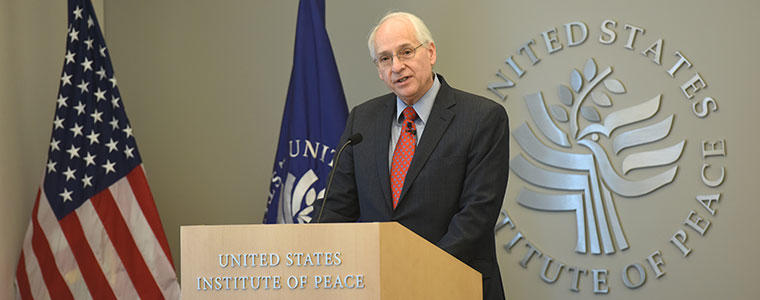U.S. Special Envoy Speaks on Sudan and South Sudan
Amb. Donald Booth on the U.S. Role in Seeking an End to Violence
Ambassador Donald Booth is completing almost two and half years as the U.S. special envoy for Sudan and South Sudan. He discussed the lessons learned from recent international initiatives to end violent conflict in both countries, and the road ahead for that effort and for the U.S. role.

Despite a national dialogue in Sudan, fighting continues in Darfur and in Southern Kordofan and Blue Nile states. Negotiations toward ending hostilities between the government and armed opposition groups are deadlocked.
In South Sudan, the conflict has spread, most recently to the Equatoria region. United Nations agencies have warned that the conflict now poses risks of genocide, of ethnic cleansing and of famine. With the international community divided on how to respond, the United States has an important leadership role to foster lasting peace within and between the two countries.
Join the conversation on Twitter with #SudanSouthSudan.
Speakers
The Honorable Nancy Lindborg, Opening Remarks
President, U.S. Institute of Peace
Ambassador Donald Booth
U.S. Special Envoy for Sudan and South Sudan
Ambassador Princeton Lyman, Moderator
Senior Advisor, U.S. Institute of Peace



